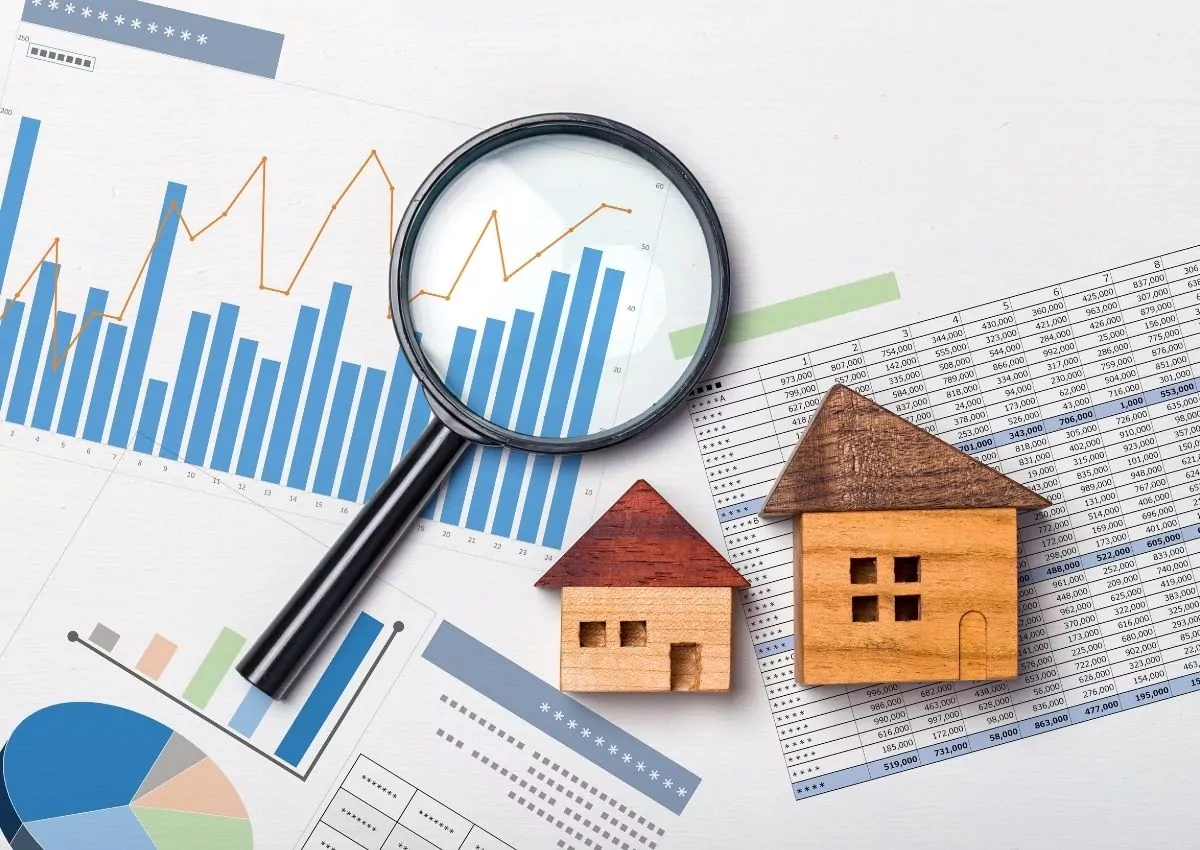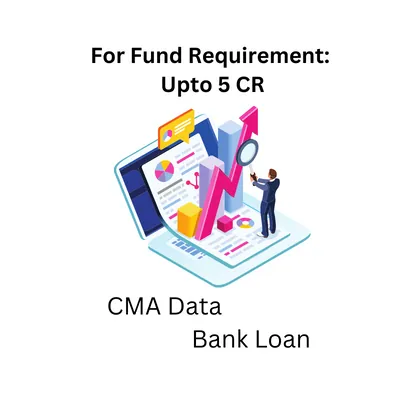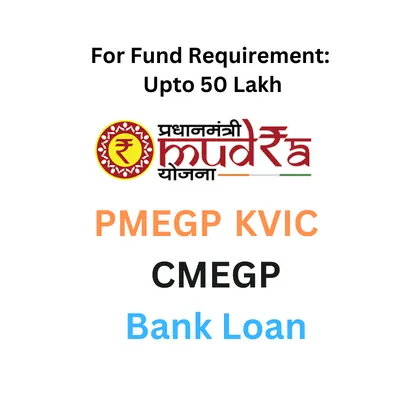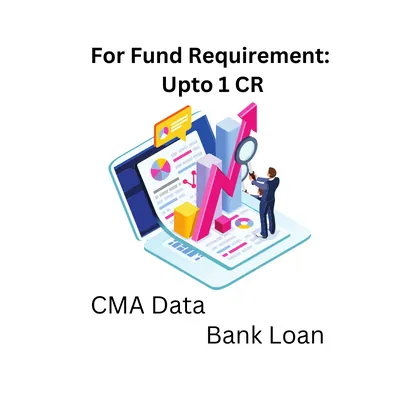Project Report on Real Estate for Project Finance. The term real estate is defined as land, which includes the air above and the group below it, and any building or structure thereon, also known as realty. It encompasses residential buildings, commercial offices and theatres, hotels, and restaurants, retail buildings, industrial buildings such as factories and government buildings.
Real estate includes the purchase, sale, and development of land, residential and non-residential buildings. The main players in the real estate market are landlords, developers, builders, real estate agents, tenants, buyers, etc. Real estate sector activities also cover the housing and construction sectors.
The real estate sector in India has assumed increasing importance with the liberalization of the economy. Business opportunities and migration of the labour force have resulted in increased, in turn, increased demand for commercial and housing space, particularly rental housing. Developments in the real estate sector are being affected by the growth of retail, hospitality, and entertainment industries (eg: hotels, resorts, cinema theaters), economies of services, and information technology (IT) enabled services, etc. It is a major employment driver, the second largest employer after agriculture only.

Overview Of Real Estate Business
The real estate business is a significant and rapidly growing industry. India’s growing population and increasing urbanization have led to a high demand for residential, commercial, and industrial properties, resulting in a thriving real estate market. In this article, we will explore the various aspects of the real estate business in India, including its size, trends, challenges, and opportunities.
Size
The real estate market in India is estimated to be worth over US $180 billion and is expected to grow at a Compound Annual Growth Rate (CAGR) of 14% over the next five years. The sector contributes around 8% to India’s GDP and is the second-largest employer in the country, providing jobs to over 5 crore people.
Trends
Several trends are currently shaping the Indian real estate market. One of the most significant trends is the shift in consumer preferences towards affordable housing. With increasing urbanization, the demand for affordable homes is on the rise, and many developers are focusing on providing affordable housing solutions to meet this demand.
Another trend is the growing popularity of co-living spaces, which are becoming increasingly popular among millennials and young professionals. These spaces offer shared living spaces and amenities, making them a cost-effective and convenient option for those looking for temporary accommodation.
The growing demand for commercial properties is another trend in the Indian real estate market. With the country’s economic growth, many businesses are expanding their operations, creating a demand for office spaces, retail spaces, and industrial properties.
Challenges
While the Indian real estate market offers several opportunities, there are also several challenges that developers and investors need to be aware of. One of the most significant challenges is the lack of transparency in the sector. This makes it difficult for investors to assess the risks involved in investing in real estate projects.
Another challenge is the complex regulatory environment in the country. Several regulations and laws govern the real estate sector, making it difficult for developers to navigate the sector. This has also led to delays in project approvals and has increased the cost of construction.
Finally, the lack of funding options is another significant challenge for the Indian real estate sector. While the government has introduced several initiatives to provide funding to the sector, access to funding remains a challenge for many developers, particularly smaller players.
Opportunities
Despite these challenges, the Indian real estate sector offers several opportunities for developers and investors. One of the most significant opportunities is the growing demand for affordable housing. Developers who can provide affordable housing solutions are likely to find significant demand for their projects.
Another opportunity is the growing demand for commercial properties. With the country’s economic growth, businesses are expanding their operations, creating a demand for office spaces, retail spaces, and industrial properties.
Finally, the government’s focus on infrastructure development provides several opportunities for real estate developers. With the government investing in infrastructure projects such as highways, airports, and railways, there is a growing demand for properties in these areas.
The real estate business in India is a significant and rapidly growing industry, offering several opportunities for developers and investors. However, the sector also faces several challenges that need to be addressed to ensure its sustained growth. With the right policies and initiatives, the Indian real estate sector has the potential to become a major contributor to the country’s economic growth.
Current State Of Real Estate In India
The real estate sector in India is expected to reach a market size of US $ 1 trillion by 2030, from US $ 120 billion in 2017. India’s real estate market is projected to grow at a CAGR of 19.5% during 2017– 2028. It is estimated to reach US $ 650 billion by 2025, representing 13% of India’s GDP.
The increasing share of real estate in GDP will be supported by increasing industrial activity, improving income levels, and urbanization.
The real sector in India today is witness to widespread changes that slowly but surely hope to make India a preferred destination for real estate activity. The real estate market is opening in India. There are still some hurdles in real estate development such as unclear title, tenancy improvements, and lower property taxes.
Project Report On Real Estate
We are a team of experts who work on all business prospects. A Real Estate Business detailed project report (DPR) is prepared after a deep analysis of this business prospect. Based on deep research and a rich pictorial and graphical view, contains significant information that can fulfil the need for financial assistance from investors banks or government-sponsored schemes.
Our data in real estate project reports is up to date, made by chartered accountants, and it can help you impress your money lenders. Project reports on our website are extraordinary and have unbeatable quality for thousands of people to trust.
You can get every micro detail to its utmost accurate level of calculation as per the guidelines of financial institutions. These project reports are accepted by all banks, nonbanking financial institutions, government departments, etc. You can easily access these neat, readable, straightforward forward, and honest descriptions. The Business Plan is well-spaced with titles and subtitles and is error-free.
Our experts make sure that the reports are precise and offer maximum information to buyers with minimum words. You can use it as a road map for all decision-making reasons whenever you require. The banks always ask for project reports before they decide to lend you a business loan. It is crucial to have this significant document that is written in simple language and understandable form so that you can get a real insight into this business idea.
Insights on the Growth of Real Estate Business In India
Real estate’s growth prospects in India are bright, driven by several factors that point towards a sustained expansion of the sector. The Indian real estate market is one of the largest and fastest-growing markets globally, driven by increasing urbanization, rising disposable incomes, and growing demand for housing, office spaces, and retail properties.
Here are some of the factors that indicate the growth prospects for the real estate business:
- Population Growth and Urbanization: India’s population is expected to grow to 1.7 billion by 2050, which will lead to increasing demand for housing and commercial properties. Urbanization is also on the rise, with over 30% of the population living in cities, and this trend is expected to continue. This provides significant growth opportunities for the real estate sector, particularly in the affordable housing and commercial segments.
- Favorable Demographics: India has a large and young population, with over 50% of the population below the age of 25. This demographic dividend is expected to drive demand for housing, particularly in the affordable housing segment. The younger generation is also more aspirational and is looking for better living standards, which presents opportunities for developers to create high-quality housing and commercial projects.
- Government Support: The Indian government has been actively promoting the real estate sector, with several initiatives aimed at boosting the affordable housing segment. The government’s flagship housing scheme, Pradhan Mantri Awas Yojana (PMAY), aims to provide housing for all by 2022. The government has also introduced several incentives, including tax breaks and lower interest rates, to encourage developers to invest in the sector.
- Infrastructure Development: The Indian government has been investing heavily in infrastructure development, including building new highways, airports, and railways. This has created a demand for real estate properties in these areas, particularly in the commercial segment.
- Rise of the Middle Class: The rising middle class in India has led to an increasing demand for better living standards, including high-quality housing and commercial spaces. This trend is expected to continue, creating opportunities for developers to cater to the needs of this growing segment.
- Foreign Investment: The Indian government has been actively promoting foreign investment in the real estate sector, with several measures aimed at attracting investment from overseas. This has resulted in increased foreign investment in the sector, providing developers with access to capital and expertise.
The Indian real estate market offers significant growth prospects for developers and investors, driven by factors such as government support, infrastructure development, the rise of the middle class, and foreign investment. While the sector faces several challenges, including lack of transparency, complex regulations, and funding constraints, the growth opportunities in the Indian real estate sector make it an attractive investment destination for both domestic and international players.
Major Factors :
1. The major external factors that people consider when purchasing property are price, loan availability, and proximity to the workplace.
2. The major in-locality factors that people consider when purchasing property are quality of construction, availability of water, and pollution-free environment.

How Do I Start a Real Estate Business In India?
Rewards and profitability are central to a real estate business venture. Ways to start the business are as follows:
- Determine Your Niche: Real estate is a vast industry, and it’s essential to identify a specific niche that you want to focus on. Some of the areas you could consider include residential sales, commercial sales, property management, real estate development, or real estate investing.
- Preparing the Business Plan: A business plan is a pivotal document highlighting financial projections, strategies, and objectives. It’s important to conduct thorough research on the real estate market in your area and develop a plan that aligns with your niche.
- Get Licensed: To work in the real estate industry, you need to obtain a real estate license. Each state has its own set of requirements, so it’s essential to research the licensing process in your area and complete the necessary coursework and exams.
- Build Your Network: Real estate is a relationship-based industry, and building a strong network of contacts is essential to your success. Attend networking events, join industry associations, and connect with other professionals in the industry to build your network.
- Develop a Marketing Plan: A strong marketing plan is crucial to promoting your services and attracting clients. Consider developing a website, and social media presence, and creating marketing materials such as brochures and flyers.
- Find a Mentor: Real estate is a complex industry, and finding a mentor who has experience and expertise in your niche can be invaluable. A mentor can offer guidance, advice, and support as you navigate the industry.
- Secure Funding: Starting a real estate business may require significant capital, particularly if you’re looking to invest in properties or develop real estate. Explore your funding options, such as loans, grants, or private investors, to secure the capital you need to get started.
- Choose the Right Team: Building a successful real estate business requires a strong team of professionals. Consider hiring a support staff, such as an administrative assistant or marketing specialist, to help you manage the day-to-day operations of your business.
Starting a real estate business requires careful planning, hard work, and persistence. By following these steps and building a strong network of contacts, you can create a successful and profitable real estate business.
Which Is The Best Location To Start a Real Estate Business In India?
Choosing the best location for a real estate business is critical to the success of the business. The location can impact the customer base, visibility, accessibility, and overall profitability of the business. Here are some factors to consider when choosing the best location for a real estate business:
- Demographics: The demographics of the area can influence the type of properties that are in demand. For example, a location with a large student population may have a high demand for rental properties, while a location with a high-income demographic may have a high demand for luxury properties.
- Accessibility and Visibility: The location should be easily accessible and visible to potential customers. A location with good visibility and easy access can attract more customers and help increase brand recognition.
- Competition: It’s important to research the competition in the area to understand the market demand and competitive landscape. A location with too much competition may make it challenging to gain a foothold in the market, while a location with no competition may indicate low demand.
- Infrastructure and Development: The infrastructure and development of the location can impact the overall value and demand for the properties. A location with good infrastructure, such as transportation, schools, and other amenities, can increase the demand for properties in the area.
- Regulatory Environment: The regulatory environment can vary depending on the location. It’s important to understand the local regulations, zoning laws, and taxes to ensure the business is compliant and sustainable.
- Future Growth Potential: It’s essential to consider the future growth potential of the location to ensure the business can remain profitable in the long term. A location with planned developments or infrastructure projects can indicate a growing market and a good investment opportunity.
Choosing the best location for a real estate business requires careful consideration of several factors, including demographics, accessibility, competition, infrastructure, regulatory environment, and future growth potential. Researching and analyzing these factors can help identify the best location for the business and ensure its long-term success.
What Are The Different Ways To Start a Real Estate Business In India?
There are many unique ways to start a real estate business, depending on your interests, resources, and target market. Here are a few examples of unique ways to start a real estate business:
- Real Estate Crowdfunding: Crowdfunding has become a popular way to finance real estate projects, and it can also be a way to start a real estate business. Arranging funds from several investors to finance a real estate project is at the core of this concept. As a real estate crowdfunding business owner, you would help investors find and invest in real estate projects.
- Virtual Real Estate Brokerage: A virtual real estate brokerage is a business that operates entirely online, and it allows real estate agents to work from anywhere. This type of business eliminates the need for a physical office, which can save on overhead costs.
- Vacation Rental Management: Vacation rental management involves managing short-term rental properties for property owners. As a vacation rental manager, you would handle bookings, guest communication, cleaning, and other tasks related to the rental property.
- Green Real Estate Development: Green real estate development involves building or renovating properties that are eco-friendly and energy-efficient. As a green real estate developer, you would focus on creating sustainable properties that are in high demand.
- Real Estate Photography and Videography: Real estate photography and videography are in high demand, as property owners and real estate agents look for ways to showcase properties in the best light. As a real estate photographer or videographer, you would specialize in creating high-quality images and videos of properties.
- Real Estate Investment Trust (REIT): A REIT is a company that owns and manages income-generating real estate properties. As a REIT owner, you would raise capital from investors and use it to acquire and manage real estate properties.
There are many unique ways to start a real estate business, depending on your interests and target market. By thinking outside the box and exploring different business models, you can create a real estate business that aligns with your goals and values.
How to Name a Real Estate Business?
Deciding upon a good and unique name for a real estate business can be a challenging task. Here are some tips to help you create a memorable and effective name for your real estate business:
- The chosen name should be easily remembered and pronounced. Avoid names that are too complicated or hard to spell, as they may be difficult for clients to find online or remember.
- Incorporate your brand identity and values into your name. Think about what makes your real estate business unique and try to reflect that in your name. For example, if you specialize in luxury properties, you may want to include words like “elegant” or “prestige” in your name.
- Use keywords that describe your business. Including relevant keywords in your business name can improve your visibility in search engines and help clients understand what you offer. For example, if you specialize in commercial real estate, you may want to include the word “commercial” in your business name.
- Consider the market and audience you are targeting. Your business name should appeal to your target audience and reflect the local real estate market. For example, if you are targeting a specific geographic area, you may want to include the name of the location in your business name.
- Research other real estate businesses in your area. Check out the names of other real estate businesses in your area and make sure your name stands out. You don’t want to choose a name that is too similar to your competitors’ names, as it may confuse you.
- Test your name with potential clients and colleagues. Once you have a few names in mind, test them out with potential clients and colleagues. Get feedback on which names are memorable, easy to understand, and align with your business goals.
Coming up with a good and unique name for a real estate business takes time and careful consideration. By following these tips, you can create a memorable and effective name that reflects your brand identity and values.
How Much Money Do I Need To Start a Real Estate Business?
The cost of starting a real estate business can vary widely depending on the size, scope, and location of the business. However, here is a general estimate of the costs involved:
- Legal and registration fees: The cost of obtaining the necessary licenses and registrations can range from a few thousand to several lakhs of rupees, depending on the state and city. In general, the cost of registering a real estate business in India ranges from INR 10,000 to INR 5,00,000.
- Office space and infrastructure: The cost of office space and infrastructure will depend on the location and size of the business. In metro cities like Mumbai, Delhi, and Bangalore, the cost of office space can be high, while in smaller cities it can be more affordable. You will need to factor in the cost of rent, utilities, office furniture, and equipment. The cost of office space can range from INR 10,000 to INR 1,00,000 per month, depending on the location.
- Staffing and salaries: Depending on the size of the business, you may need to hire staff to handle various aspects of the business. This can include sales agents, administrative staff, and marketing professionals. The cost of salaries and benefits will depend on the experience and skills of the staff. The cost of staffing and salaries can range from INR 10,000 to INR 1,00,000 per month, depending on the number of employees and their skills.
- Marketing and advertising: To attract clients and promote your business, you will need to invest in marketing and advertising. This can include creating a website, running social media campaigns, and creating print materials like brochures and business cards. The cost of marketing and advertising can vary depending on the scale of the campaign. The cost of marketing and advertising can range from INR 10,000 to INR 1,00,000 per month, depending on the type and scale of the campaign.
- Working capital: As with any business, you will need working capital to cover expenses like rent, salaries, and marketing costs until your business starts generating revenue. The amount of working capital required will depend on the size of the business and the projected revenue. The cost of working capital can range from INR 1,00,000 to INR 10,00,000, depending on the size and scale of the business.
The cost of starting a real estate business in India can range from INR 1,00,000 to INR 50,00,000, depending on the size, scope, and location of the business. It is important to conduct thorough research and create a detailed business plan to estimate the required investment and plan accordingly. Additionally, seeking the advice of experienced professionals in the real estate industry can help create a realistic budget and investment plan.
Tools and Equipment Needed For Running a Real Estate Business
Starting a real estate business in India does not necessarily require a lot of equipment. However, some essential tools can make the process easier and more efficient. Here are some of the equipment and tools needed to start a real estate business:
- Computer and Software: A computer or laptop is essential for managing contacts, preparing documents, and creating presentations. Real estate agents can use software like Microsoft Office Suite, Google Suite, or specialized real estate software for managing their business.
- Mobile Phone: A smartphone with a good camera is essential for taking photos and videos of properties, communicating with clients, and staying connected on the go.
- Internet Connection: A reliable internet connection is necessary for accessing real estate listings, managing email, and staying connected with clients.
- Vehicle: Real estate agents need a reliable mode of transportation to meet clients, show properties, and attend meetings. While a car or SUV is ideal, a two-wheeler can also be useful in some areas.
- Digital Camera: A high-quality digital camera can help you take better photos of properties to showcase online and in marketing materials.
- Measuring Tape and Laser Measure: Measuring tools like measuring tape and laser measure can help you accurately measure properties and prepare floor plans.
- Signage and Display Materials: Signage and display materials like banners, yard signs, and property display stands can help you promote your business and showcase properties.
- Office Supplies: Basic office supplies like pens, paper, file folders, and a printer are necessary for managing paperwork and staying organized.
Starting a real estate business does not require a lot of equipment, but having the right tools can make the process easier and more efficient. The equipment and tools mentioned above can help you manage contacts, communicate with clients, showcase properties, and stay organized. It is important to invest in high-quality equipment and tools to ensure that you can provide the best service to your clients.
Real Estate Business Set Up
The infrastructure requirements for a real estate business can vary depending on the size and scope of the operation, but here are some common elements:
- Physical office space: A real estate business typically requires a physical location to conduct meetings with clients, store important documents, and carry out administrative tasks. The office space should be located in a convenient location and should have adequate parking and accessibility.
- Communication systems: A reliable communication system is critical for a real estate business. This includes telephone lines, internet access, and email services. The communication system should be set up to ensure that clients and employees can reach the business at all times.
- Software and technology: A real estate business requires specific software and technology to manage client data, listings, and other essential information. This includes customer relationship management (CRM) software, website development, and marketing tools.
- Transport: Depending on the size and scope of the business, the company may require vehicles for agents to show properties to clients. These vehicles should be well-maintained, and the business should have insurance coverage for them.
- Human resources: A real estate business requires employees to handle various tasks such as sales, marketing, accounting, and administration. The company should have a recruitment and hiring process in place, along with training and development programs for employees.
- Legal and financial support: A real estate business requires legal and financial support to manage contracts, taxes, and other legal issues. The business should have access to lawyers, accountants, and other professionals who can guide on legal and financial matters.
- Security systems: A real estate business should have security systems in place to protect important documents and client information. This may include surveillance cameras, alarms, and secure file storage systems.
Overall, the infrastructure requirements for a real estate business can be extensive, and it’s essential to plan and budget carefully to ensure that the business can operate efficiently and effectively.
Staff Needed for Real Estate Business
The number and type of staff needed when starting a real estate business can vary depending on the size and scope of the operation. Here are some common positions to consider:
- Real Estate Agents: Real estate agents are the backbone of any real estate business. They are responsible for helping clients buy and sell properties, and for generating new business. They typically work on a commission basis, meaning they are paid a percentage of the sale price of the property.
- Administrative Staff: Administrative staff provides support to real estate agents and handles the day-to-day operations of the business. This may include receptionists, office managers, and administrative assistants. They are responsible for answering phones, scheduling appointments, handling paperwork, and other administrative tasks.
- Marketing Staff: Marketing staff is responsible for promoting the business and its listings. This may include creating marketing materials, managing social media accounts, and coordinating events and other promotional activities.
- Accounting Staff: Accounting staff is responsible for managing the finances of the business. They may handle accounts payable and receivable, payroll, and tax preparation.
- Legal Staff: Legal staff provides legal advice and assistance to the business. They may draft and review contracts, provide advice on legal matters, and represent the business in legal proceedings.
- IT Staff: IT staff is responsible for managing the technology infrastructure of the business. They may handle website development, software implementation and management, and other technology-related tasks.
When starting a real estate business, it’s important to consider the roles and responsibilities needed to operate effectively and efficiently. Depending on the size and scope of the business, some positions may be combined or outsourced to external contractors. As the business grows, additional staff may be needed to support expansion and increasing client demands.
What Are The Licenses and Permits Needed To Start Real Estate Business In India?
Starting a real estate business in India requires compliance with several licenses and permits. The specific requirements may vary depending on the state where the business is being set up, but here are some common licenses and permits that are required to start a real estate business in India:
- Real Estate Regulatory Authority (RERA) Registration: Real Estate Regulatory Authority (RERA) registration is mandatory for all real estate businesses in India. It is an online registration process that requires the business to provide detailed information about the company, its directors, and the properties it intends to sell. The RERA registration is required to ensure transparency and accountability in the real estate sector.
- Goods and Services Tax (GST) Registration: GST registration is mandatory for all businesses in India that have an annual turnover of more than Rs. 40 lakhs. The real estate business is included under the ambit of GST, and the business must register for GST and file monthly returns.
- Shop and Establishment Act Registration: The Shop and Establishment Act registration is mandatory for all businesses in India. This registration ensures that the business complies with various labour laws and regulations, including employee welfare, working hours, and leave policies.
- Municipal Corporation License: The municipal corporation license is required for businesses that operate from commercial premises. The license is obtained from the local municipal corporation and ensures that the business complies with local regulations related to health and safety, building codes, and fire safety.
- Trade License: The trade license is mandatory for businesses that engage in commercial activities, including real estate. The trade license is obtained from the local municipal corporation and ensures that the business complies with local regulations related to health and safety, building codes, and fire safety.
- PAN and TAN: Permanent Account Number (PAN) and Tax Deduction and Collection Account Number (TAN) are required for businesses to file income tax returns and to deduct and pay taxes on salaries.
These are some of the common licenses and permits required to start a real estate business in India. It’s essential to consult with a professional or local authorities to ensure compliance with all relevant laws and regulations.
How Do I Promote Real Estate Business?
Promotion is crucial for starting a real estate business as it helps to establish a brand identity and generate leads. Here are some advertising and promotional needs for starting a real estate business:
- Website: In today’s digital age, having a website is essential for any business, including real estate. A website allows you to showcase your properties, services, and company information to potential clients. Make sure your website is user-friendly, easy to navigate, and optimized for search engines to increase visibility.
- Social media: Social media platforms like Facebook, Instagram, and LinkedIn provide a cost-effective way to connect with potential clients, promote properties, and engage with your audience. Regularly post photos, videos, and information about your services and properties to keep your audience engaged.
- Brochures and flyers: Printed materials like brochures and flyers are still effective for promoting your business, especially at events and in local communities. Make sure your printed materials are eye-catching and informative, and include all relevant information about your business and properties.
- Networking: Networking with other real estate professionals, business owners, and potential clients is a great way to promote your business and generate leads. Attend industry events, join local business associations, and participate in community events to expand your network.
- Referrals: Referrals are a powerful way to generate leads and build your business. Encourage satisfied clients to refer their friends and family to your business, and consider offering incentives for referrals.
- Online listing platforms: There are various online listing platforms like 99acres, Magicbricks, and Housing.com, where you can list your properties for free or for a fee. This can increase the visibility of your properties and generate leads.
Advertising and promotion are essential for starting a real estate business. By establishing a strong brand identity, networking, and promoting your business through various channels, you can increase the visibility of your business and generate leads. It is important to create a detailed advertising and promotion plan that fits your budget and target audience. Consider seeking the advice of experienced professionals in the real estate industry to develop a comprehensive advertising and promotion strategy.
How to prepare a Project Report on Real Estate for Project Finance?
The concept of a project report for a real estate project is slightly different from the DPR (detailed project report) of other regions. In real estate, the project will be executed and sold out in full. Here, a loan is not taken to build an asset but to build inventory that will be sold with time.
This industry may have peculiar scenarios such as digging the first hole in the land without inventory sales. A soft launch on paper can lead to sales. The sale of apartments or commercial spaces can continue in the levelling of the site and the phases of civil works, while there is no visible construction of a building.
A project report on real estate has to be prepared with a clear mindset of the time of the project. The project is expected to be completed from the time of launch till the completion of the floor wise.

Information required for Real Estate report preparation
1. Profiles of builders, previous projects, and related brands to highlight the builder’s image.
2. Understanding whether the company taking the project is an SPV (Special Purpose Vehicle) or an existing company. The SPV has to be supported by the support of the actual promoters.
3. Technical project report as approved by the architect, including estimates of expenses.
4. A detailed profile of architects will highlight the expertise used and win the trust of buyers.
5. Accurate description of the number of towers to be built with multiple floors in each tower, no. Shell space on each floor, the size of such a space.
6. Facility to provide sports areas, gardens, clubs, community halls, etc. to the residents.
7. Options to reach the project site with distance.
8. Distance of major infrastructural establishments from the project site such as airports, railways, educational institutions, workplaces, highways, police/fire departments, hospitals, etc.
9. The management finalized the construction plan and the sale (payment) plan.
10. Detailed pricing scheme which includes basic fees, parking, developmental fees, power backup, lift or similar services, club membership, etc. other charges.
11. Payment plan time
12. Status of clearance from various departments like map approval from city and country planning department, power/water connection, pollution, environment and airport clearance, fire department, and mining department approval.
13. Any other information relevant to the project report according to each particular case.
Preparation of Real Estate Project Report
Developing a project report will involve a smooth flow that will keep the reader interested and relevant to the topic. Any ambiguous information will not indicate the originator’s charity towards the project. Such a perception of vague ideas would make the lender extra cautious in its support of the fund.
The basic parameters are the same as detailed in the detailed project report. However, special mention will be given here:
1. The current scenario of real estate companies and a lack of confidence in buyers due to delivery issues have increased the need to broaden the profile of builders. All previous projects, successful deliveries, ongoing projects, experience in the field, and capabilities of the team to be explained.
2. The details about the landowner and the developer, if they vary, should be explained to them. In addition, payments made to obtain development rights and EDC / IDC (External Development / Internal Development Fee) should be mentioned. The advisor must be assured that such payments have been made or agreed to have stamped consent to the payment method regarding such rights.
3. Special efforts made for this project such as extensive landscaping or special designing techniques such as terrace gardens are to be highlighted.
4. Large-sized projects employ consultants for much of their planning and execution. These can be related to financial advisors, architectural design consultants, electrical/plumbing/fire consultants, HVAC (heating ventilation air conditioning) consultants, etc., detailed mentions about Vastu consultants, and a brief mention about other consultants regarding professional approach. Tells in Project construction.
5. Real estate projects require certain approvals that are necessary to start, build and sell the project. As mentioned above, such approvals should be taken care of by the promoters and the status of all such approvals should be detailed in the DPR.
6. Marketing is a strategy and must be done with the utmost skill and experience. Such techniques are used out of competition, however, marketing spending is a major topic of budget.
7. The current market trend needs to be studied in depth according to the location of the project, the surrounding areas, the state of the infrastructure in the surroundings, and customer feedback on the existing projects in the surrounding areas.

Revenue Model
The revenue model of the real estate project report begins with the construction of the project and ends with the sale of the entire project. Therefore, the cash flow of the project has the biggest role in understanding the movement of the fund. The key drivers of the financial model need to be brought to the forefront and are relevant to readers:
1. The exact area of the project, the space consumed in the built-up area, the number of towers, the flats/office space, no. On the floor.
2. There is a need to specify the construction cost per square foot as this will ultimately result in fixing the selling price per square foot.
3. The total cost of construction, payments made to purchase development rights, EDC / IDC fees, and any other sinking or variable costs are to be included clearly and accurately.
4. Considering the time it takes to place each slab, a monthly construction schedule needs to be fixed, which should coincide with the overall total construction cost.
5. The sales and payment plan determines the funding status and application. This time should be included very accurately in the financial model because the funding and completion of the project depend on the proper funding and application of such funds.
6. Work-in-progress (WIP) should be recognized as close to the actual expected and should be in sync with manufacturing, and sales, and carry forward for the following years.
7. The DSCR (debt service coverage ratio) should not be calculated in terms of cash profits. This project requires thorough consideration.
8. Until the sale is booked, the advance received from buyers remains as an obligation to the builder.
9. Like EDC / IDC fees or other payments made to obtain developmental rights, all fad is converted to WIP.
Profitability
10. The calculation of profit in each year may show a loss initially and some profit in the coming years, however, the total life of the project is to be considered until sold. Whether it is profitable as a whole and the cash flows are sufficient to meet the demand of lenders is more important than the profits of the individual year.
11. It is an understanding in real estate projects, that the borrower’s share to contribute to the financing of the project will not be less than the banker’s share of the financing. However, considering the respective parameters, a slight deviation may be allowed.
Bankers today have reservations about lending to real estate projects. However, good projects and a satisfactory previous track record are still funded. Loan funding becomes problematic even when the actual sale is not taking place. Hence market footing of brand and marketing efforts is also considered by the banker to understand the feasibility of the proposal.
We have brought all of the concerns that are typically exclusive to project reports for real estate, however, we have tried to include aspects that apply to the majority of such project reports. Whatever is added to a particular project has to be dealt with accordingly.
Conclusion
The article is a brief description of what is included in the detailed project report of a real estate project. This includes our various project reports, practical experience when dealing with the bank, and value additions for our readers and customers.
Frequently Asked Questions On Real Estate Project Report For Bank Loan India
How do I differentiate my real estate business from other competitors in the market?
To differentiate your real estate business, you may focus on your unique value proposition, such as personalized service, innovative marketing strategies, specialized expertise, or social responsibility initiatives. You may also consider targeting a specific niche market, such as luxury properties, commercial real estate, or sustainable housing.
How can I build a strong network of contacts and clients for my real estate business?
Building a strong network of contacts and clients requires consistent effort and relationship-building skills. You may consider attending networking events, joining industry associations, partnering with other businesses, offering referral incentives, and creating informative and engaging content that resonates with your target audience.
How can I leverage technology to streamline my real estate business operations?
There are many technological tools and platforms available that can help you automate and optimize various aspects of your real estate business, such as lead generation, customer relationship management, marketing, and transaction management. You may consider using virtual tours, 3D imaging, and social media to enhance the online presence of your properties and reach a wider audience.
How can I stay up-to-date with the latest trends and regulations in the real estate industry?
Staying up-to-date with the latest trends and regulations in the real estate industry requires ongoing learning and research. You may consider attending industry conferences, participating in online forums, subscribing to industry publications, and collaborating with other professionals in the field.
How can I create a positive and memorable customer experience for my real estate business?
Creating a positive and memorable customer experience requires a customer-centric approach, effective communication, and attention to detail. You may consider providing personalized service, being responsive and transparent, offering incentives and rewards, and going the extra mile to exceed customer expectations.
- Rejected Mudra Loan – What to Do Next? Appeal Process Explained
- Mudra Loan for Used Vehicle: Benefits, Interest Rates, and Eligibility Criteria
- Is the Mudra Loan Subsidy Real or Fake? Get the Facts Here
- Get Your Mudra Loan Approved: Write a Perfect Project Report with This Guide
- Mudra Loan Without CIBIL Score: How to Qualify and Apply
-
 Excellent Project Report₹15,000
Excellent Project Report₹15,000 -
 Best Project Report₹15,000
Best Project Report₹15,000 -
 Detailed Project Report₹15,000
Detailed Project Report₹15,000 -
 Smart Project Report₹15,000
Smart Project Report₹15,000 -
 Advance Project Report₹15,000
Advance Project Report₹15,000





